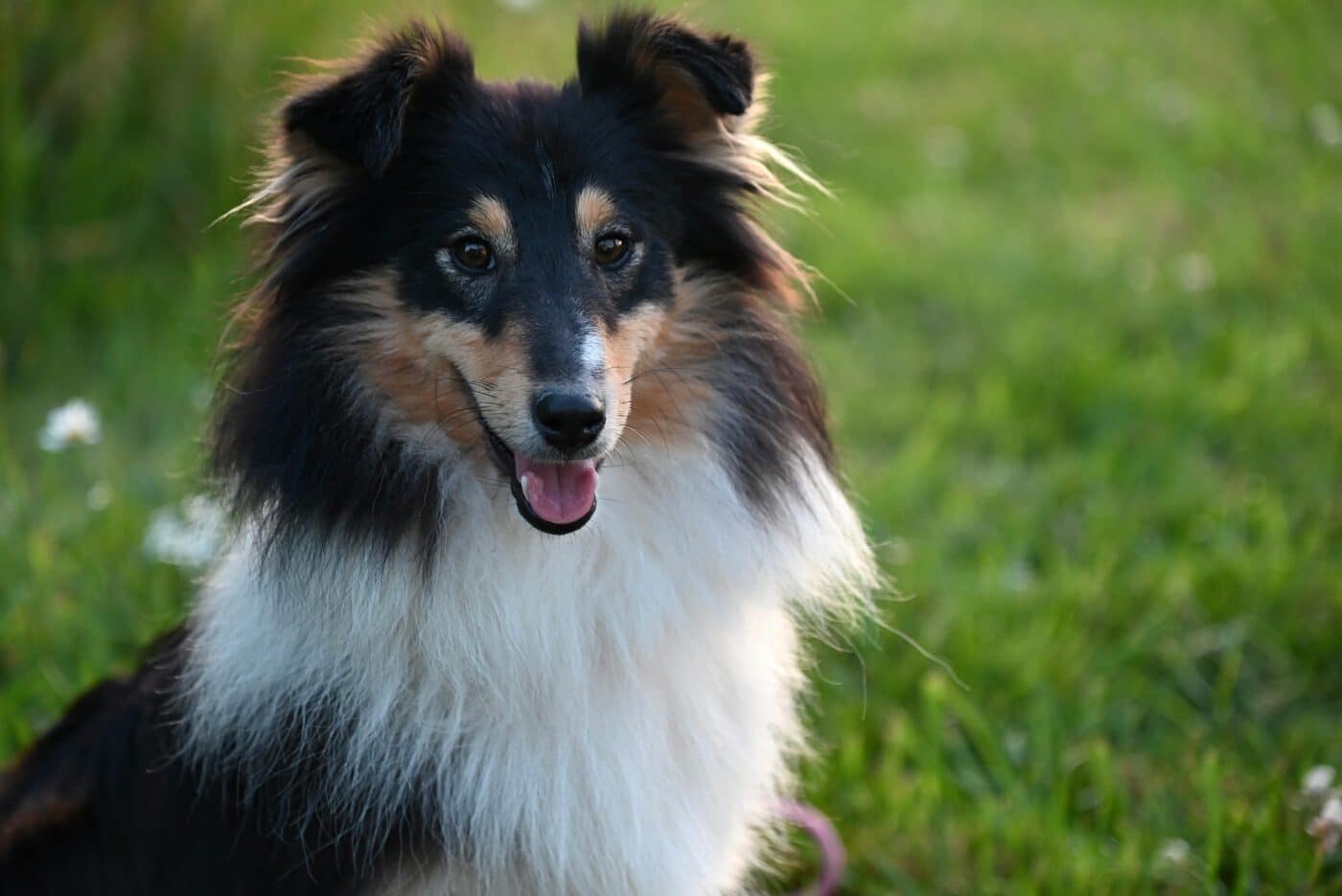 Shutterstock
Shutterstock
While many dogs are known for their calm and confident temperament, some breeds are more prone to anxiety than others. This anxiety can manifest through behaviors like excessive barking, restlessness, or destructive tendencies, often triggered by things such as separation from their owners, loud noises, or unfamiliar environments. Understanding which breeds are more vulnerable to anxiety allows owners to create a calm, supportive space for their dogs. By recognizing these traits, owners can better manage their dog’s anxiety and ensure their furry companions a happier, more balanced life.
Chihuahua
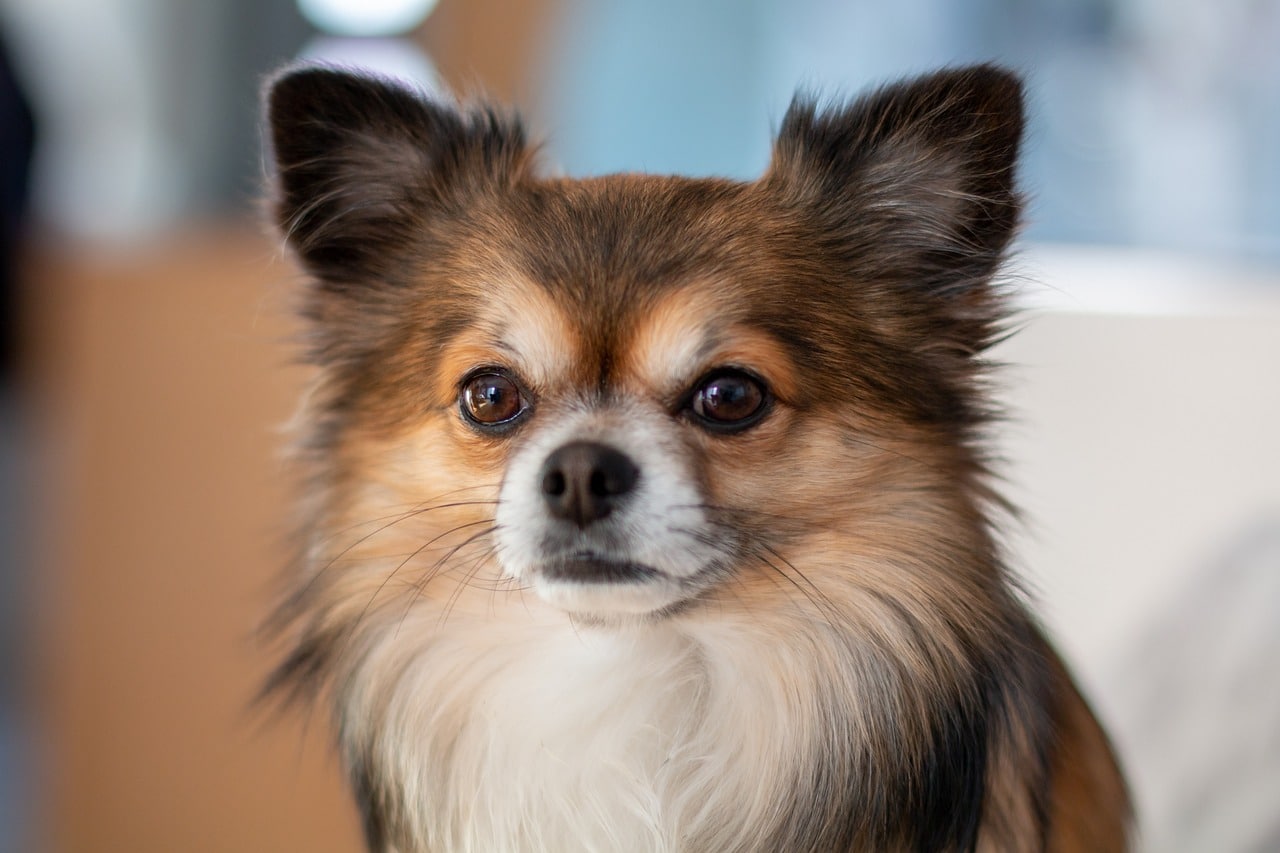 Shutterstock
Shutterstock
Chihuahuas may be tiny, but they often have big personalities—and, in some cases, big anxieties. These small dogs are known for being alert and highly sensitive to their surroundings, which can make them prone to anxiety, especially in unfamiliar situations. Separation anxiety is a common issue for Chihuahuas, as they tend to form strong bonds with their owners and can become distressed when left alone. Their delicate size also makes them more susceptible to fear-based anxiety, especially around larger dogs or in crowded environments.
Border Collie
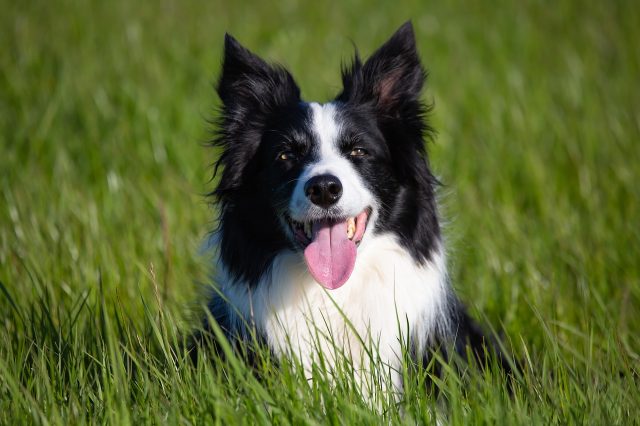 Shutterstock
Shutterstock
Border Collies are among the smartest dog breeds, and their intelligence can sometimes be a double-edged sword regarding anxiety. These high-energy dogs thrive on mental and physical stimulation; without enough exercise or activities, they can become anxious or frustrated. Boredom often leads to destructive behavior or obsessive habits such as pacing or chasing their tails. Border Collies are also highly attuned to their surroundings, making them more likely to develop anxiety in stressful or unpredictable environments. Their need for structure and purpose means they do best in active homes where they have a job to do.
German Shepherd
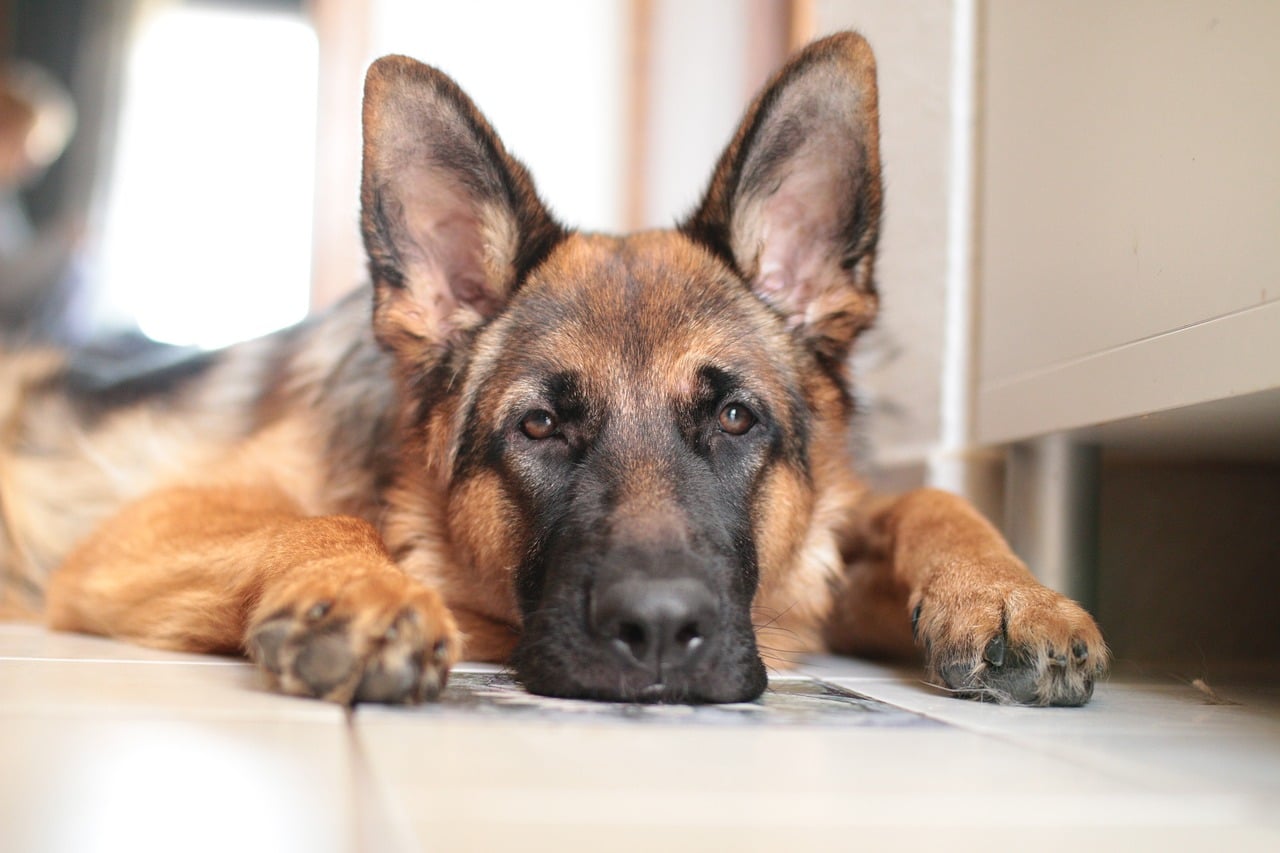 Shutterstock
Shutterstock
German Shepherds are known for their loyalty and protectiveness, but they can also be prone to anxiety, particularly when separated from their owners. Separation anxiety is a common issue for this breed, as they form deep bonds with their human companions and may become distressed when left alone for extended periods. German Shepherds also tend to be highly alert and can become anxious in unfamiliar environments or around strangers. Their strong protective instincts can lead to heightened anxiety if they feel their family is threatened, making it important for them to be in a stable and secure environment.
Cocker Spaniel
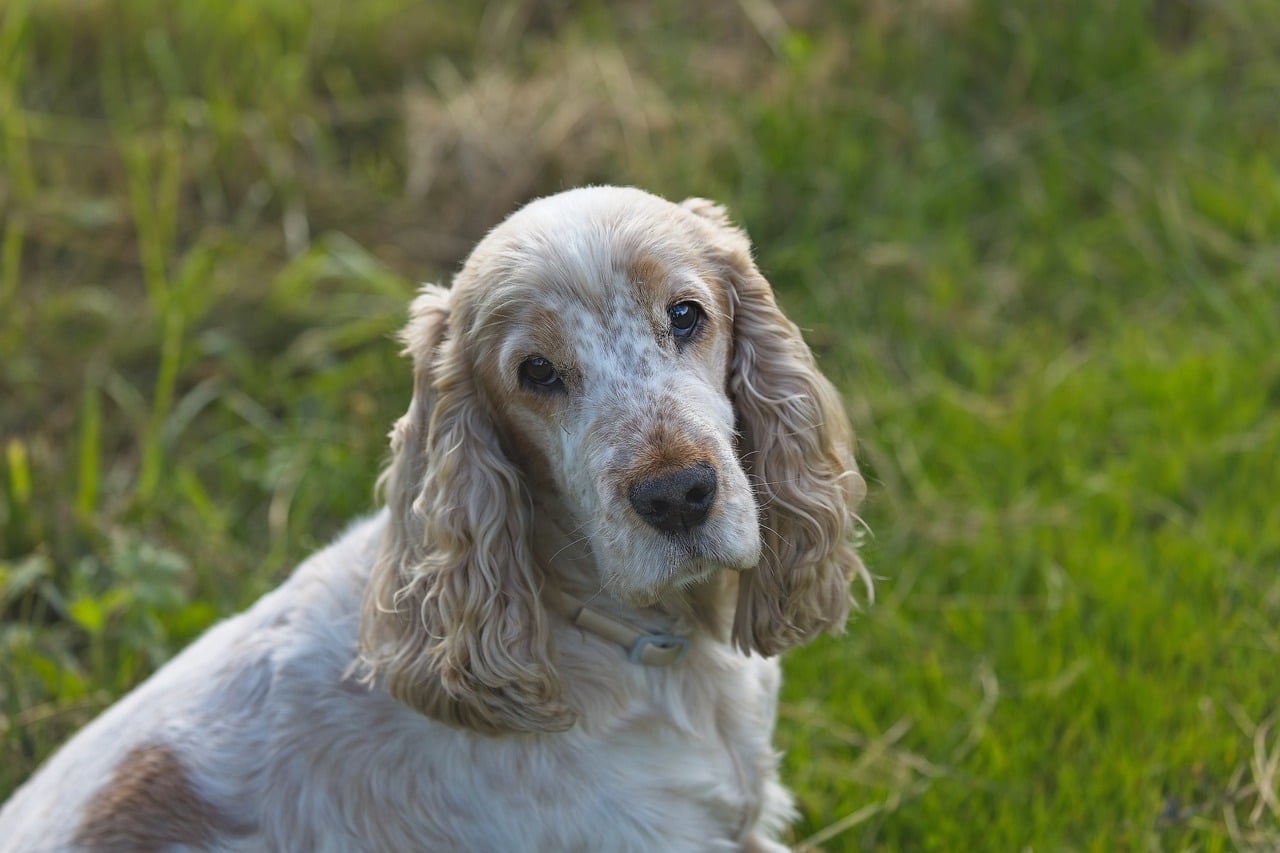 Shutterstock
Shutterstock
Cocker Spaniels are known for their sweet, gentle nature but are also one of the breeds most prone to anxiety. These affectionate dogs crave human interaction and can become anxious if they don’t receive enough attention. Cocker Spaniels are particularly susceptible to separation anxiety, as they are deeply attached to their families and can struggle with being left alone. Loud noises, such as thunderstorms or fireworks, can also trigger anxiety in this breed. Their sensitive nature means they require a calm and loving environment to thrive, and owners should be mindful of providing plenty of reassurance during stressful situations.
Bichon Frise
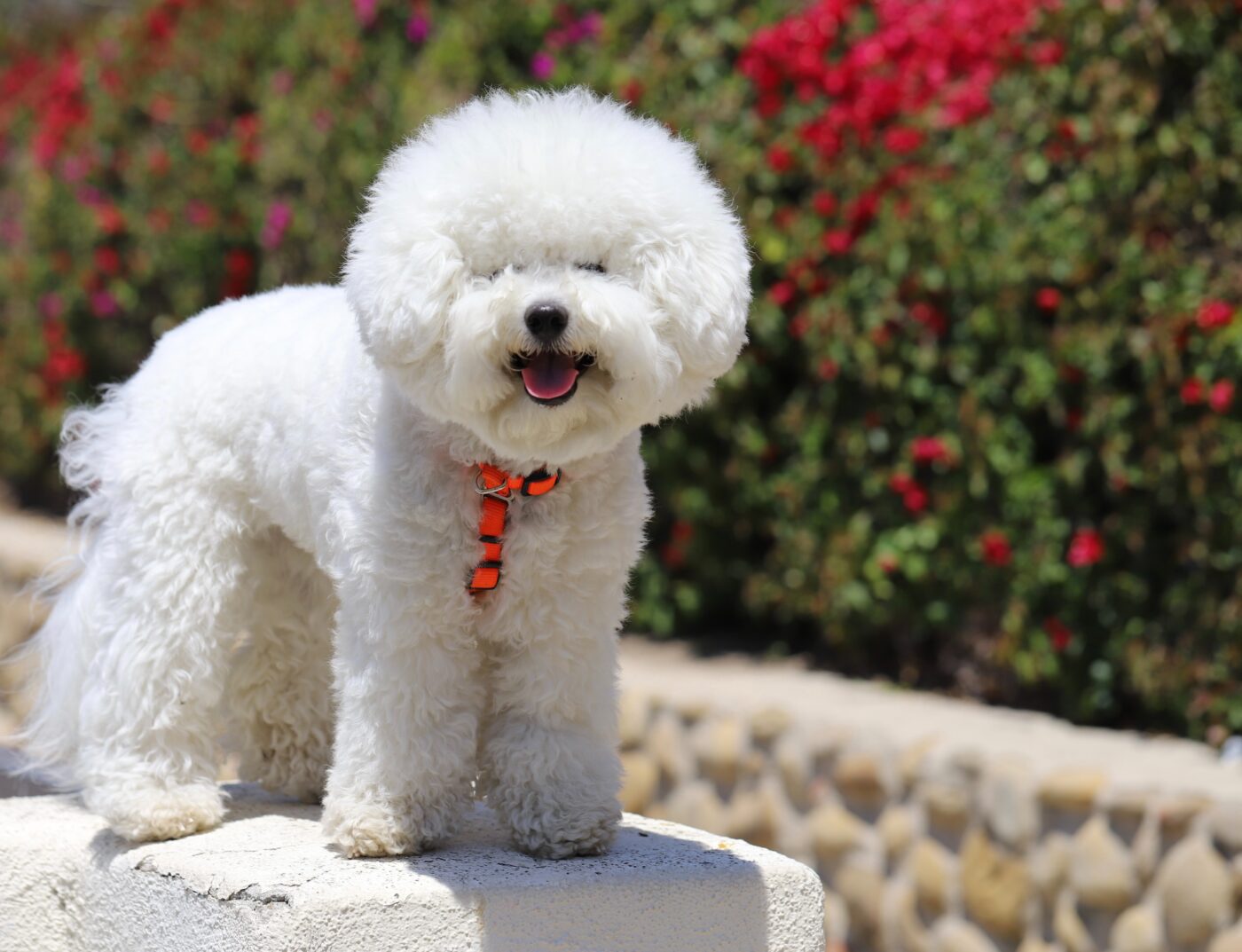 Shutterstock
Shutterstock
Bichon Frises are friendly, affectionate dogs that love being around their owners, but this attachment can sometimes lead to anxiety. These small dogs are known for being highly social, and they do not do well when left alone for long periods. Separation anxiety is a common issue for Bichon Frises, often resulting in destructive behavior or excessive barking when left alone. Their need for companionship means they thrive in homes where someone is always around to keep them company. They are also sensitive to changes in their environment, making having a stable and predictable routine important.
Whippet
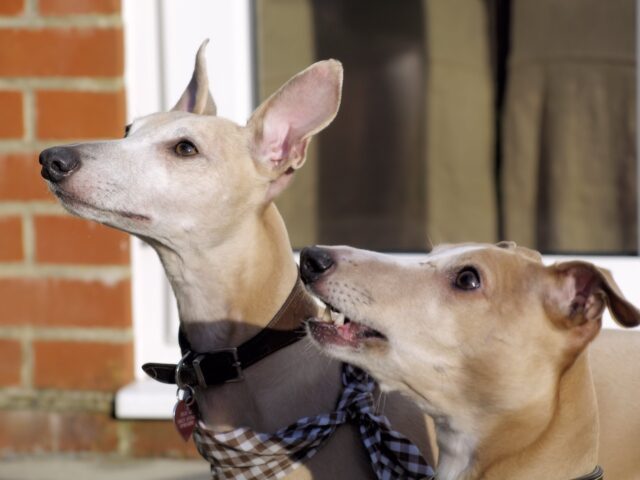 Shutterstock
Shutterstock
Whippets are gentle and affectionate dogs that form strong bonds with their families but can be prone to anxiety, particularly when it comes to loud noises. Noise phobia is common in Whippets, and thunderstorms, fireworks, or even sudden loud sounds can cause significant distress. They are also sensitive to changes in their environment, which can make them anxious if they move to a new home or disrupt their routine. Whippets do best in calm, quiet environments where they feel secure, and owners should take care to minimize exposure to noise and other stressors.
Vizsla
 Shutterstock
Shutterstock
Often referred to as “velcro dogs” because they tend to stick close to their owners, Vizslas are extremely affectionate and loyal, but this attachment can sometimes lead to anxiety. Vizslas are prone to separation anxiety and can become distressed if they are left alone for too long. They are also highly energetic dogs that need plenty of physical activity to stay calm and content. Without enough exercise or stimulation, Vizslas can develop anxious behaviors such as pacing, barking, or destructive chewing. They thrive in active households where they can be with their family members throughout the day.
Italian Greyhound
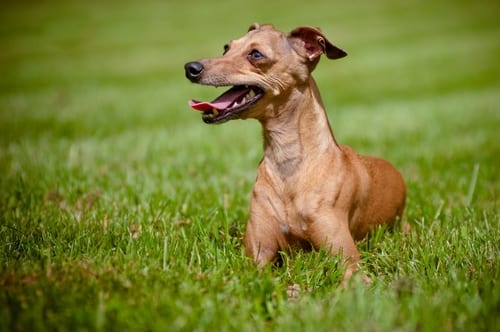 Shutterstock
Shutterstock
Italian Greyhounds are delicate, sensitive dogs known for being anxious in certain situations. They are particularly prone to separation anxiety and do not handle being left alone for extended periods. Italian Greyhounds are also sensitive to cold and often become anxious in environments that are too chilly for their liking. Their small size and fragile build make them more vulnerable to fear-based anxiety, especially in crowded or chaotic environments. Italian Greyhounds do best in calm, predictable households where they feel safe and secure and appreciate plenty of physical closeness with their owners.
Jack Russell Terrier
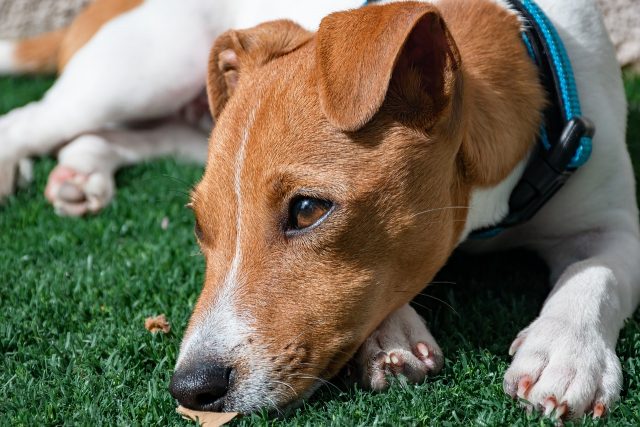 Shutterstock
Shutterstock
Jack Russell Terriers are energetic, intelligent dogs that can sometimes develop anxiety if they don’t get enough mental and physical stimulation. Known for their strong prey drive and boundless energy, Jack Russells need plenty of activities to keep their minds occupied. They can become frustrated and anxious without sufficient exercise, often exhibiting behaviors such as digging, barking, or chewing. Jack Russells are also highly sensitive to their environment and can become anxious in noisy or unpredictable situations. Providing plenty of opportunities for play and exercise can help reduce anxiety in this active breed.
Shih Tzu
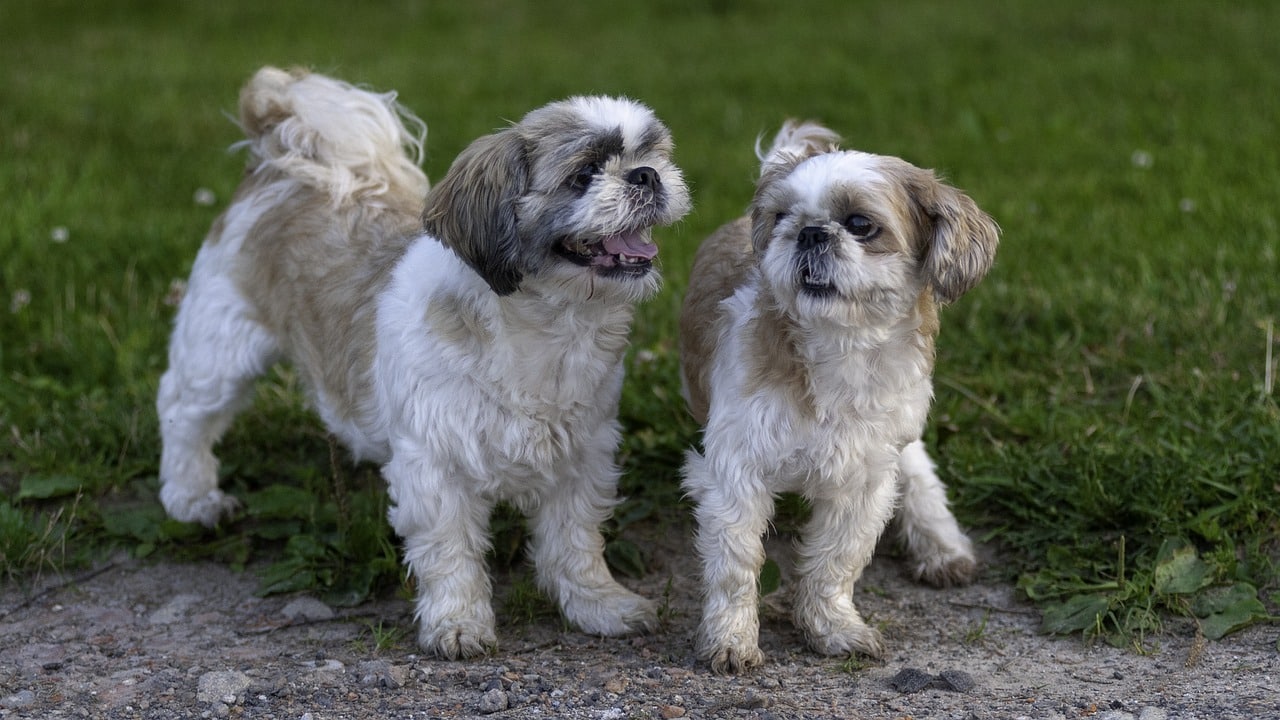 Shutterstock
Shutterstock
Shih Tzus are affectionate lap dogs that love being close to their owners, but this strong attachment can sometimes result in separation anxiety. Shih Tzus thrives on companionship and can become distressed when left alone for too long. They are also sensitive to changes in their environment, and sudden disruptions to their routine can cause anxiety. Shih Tzus do best in households with plenty of attention and affection, and owners should create a calm, stable environment to keep their Shih Tzu feeling safe and secure.
Shetland Sheepdog
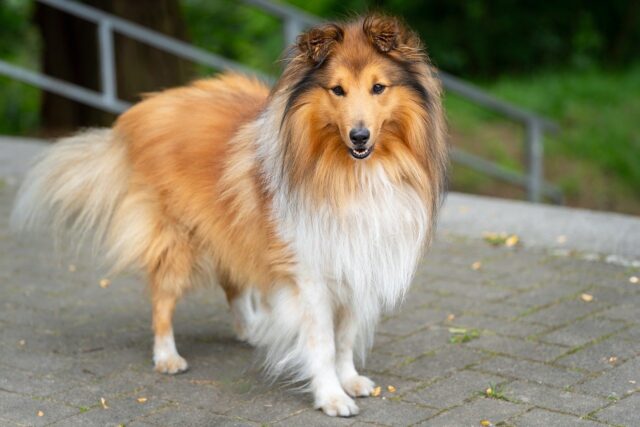 Shutterstock
Shutterstock
Shetland Sheepdogs, or Shelties, are highly intelligent and sensitive dogs that can be prone to anxiety, particularly when it comes to loud noises or unfamiliar environments. Shelties are known for their strong herding instincts, and their high alertness can make them more likely to develop anxiety in stressful situations. They are also very attached to their families and can suffer from separation anxiety if left alone for extended periods. Providing a stable, structured environment with plenty of mental stimulation can help reduce stress in this breed.
Labrador Retriever
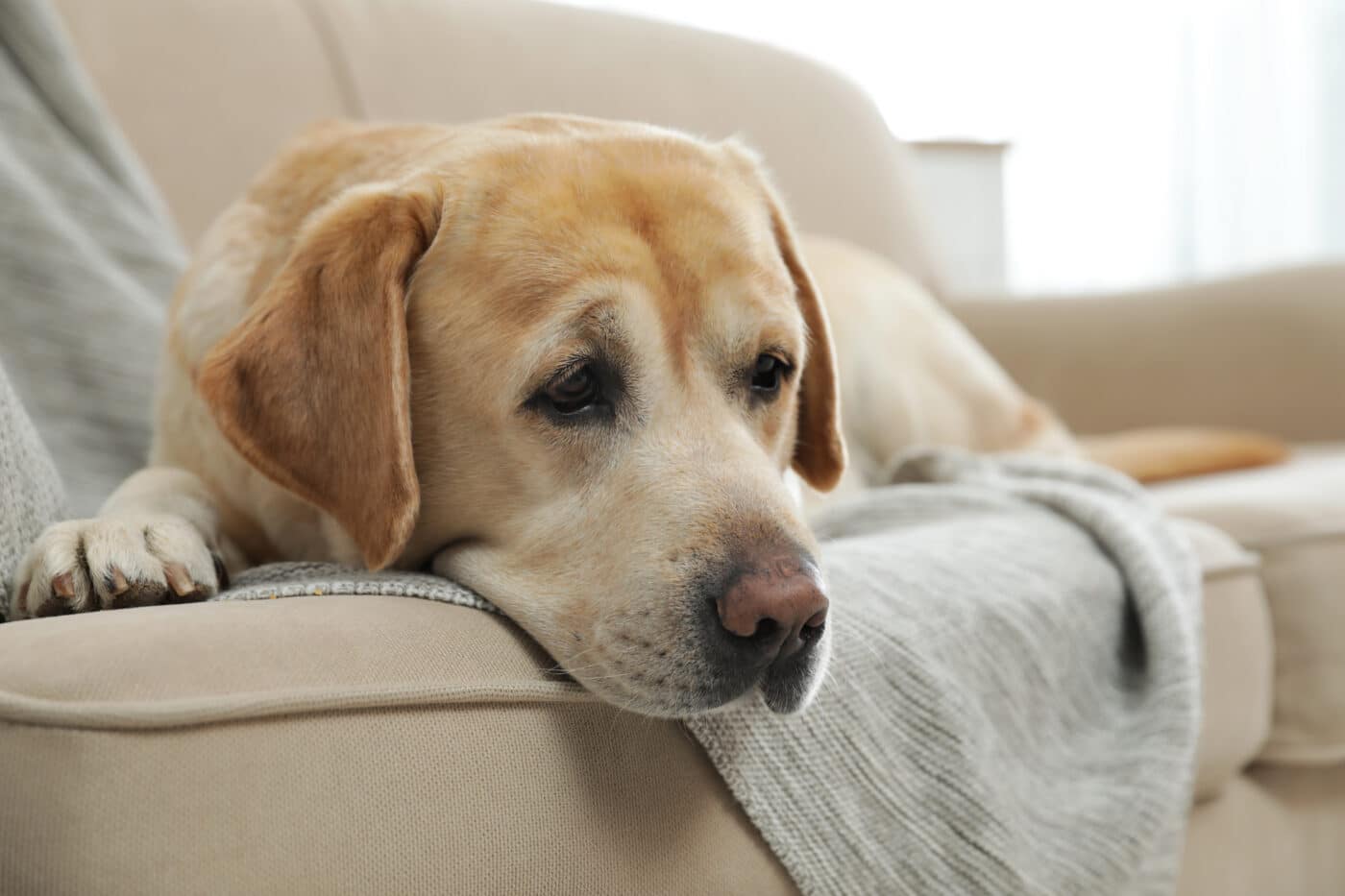 Shutterstock
Shutterstock
Despite their friendly and outgoing personality, Labrador Retrievers can be prone to anxiety, particularly separation anxiety. These dogs thrive on companionship and are known to form strong bonds with their owners. They may exhibit anxious behaviors such as excessive barking, chewing, or destructive tendencies when left alone for extended periods. Lab owners must provide plenty of social interaction, exercise, and mental stimulation to help alleviate anxiety. Regular training and positive reinforcement can also assist in building their confidence, ensuring they feel secure even when alone.
Great Dane
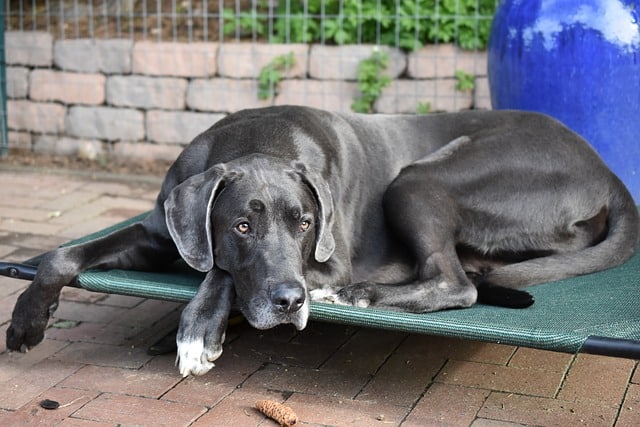 Shutterstock
Shutterstock
Great Danes are known for their gentle and affectionate nature, but their size can sometimes amplify their anxiety levels. These dogs are sensitive to their environment and can become anxious in unfamiliar situations or loud noises. Their natural protective instincts may also cause them to feel uneasy when they sense potential threats. Proper socialization from a young age is crucial to help them develop confidence and reduce anxiety. Great Danes benefit from a calm and structured environment and positive reinforcement training to help them cope with stressful situations.
Akita
 Shutterstock
Shutterstock
Akitas are known for their loyalty and strong protective instincts, but this breed can be prone to anxiety, especially if not properly socialized. They may develop separation anxiety when left alone for long periods, leading to destructive behaviors. Akitas require a stable and secure environment, as they are sensitive to changes in their routine or surroundings. Regular exercise, mental stimulation, and training are essential to help alleviate anxiety. Owners should also establish consistent boundaries and routines to give Akitas a sense of security and reduce their anxiety levels.
Basset Hound
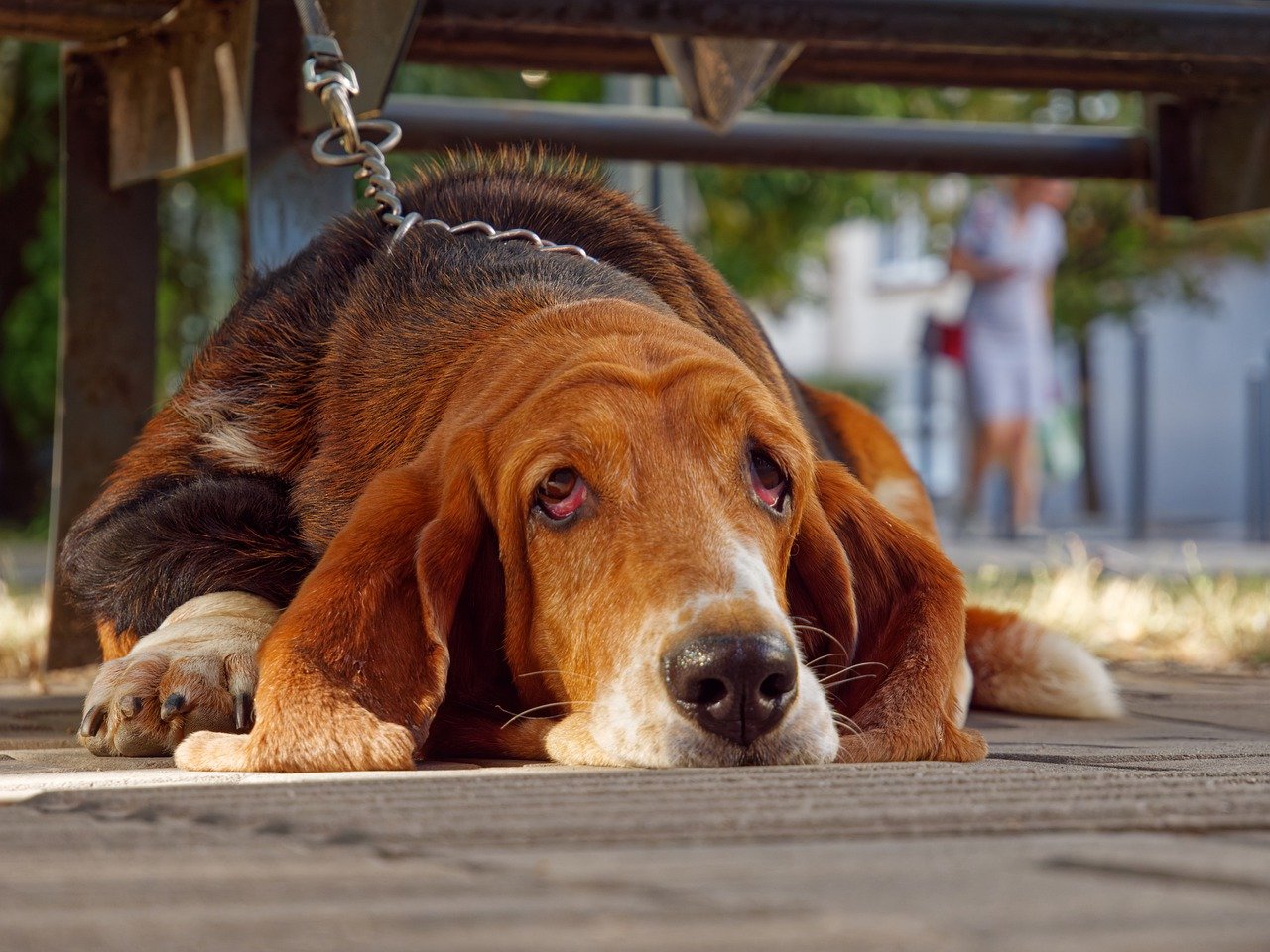 Shutterstock
Shutterstock
Basset Hounds are laid-back dogs with a sweet disposition, but they can be sensitive and prone to anxiety. Their strong sense of smell can make them prone to getting distracted, and they may become anxious when they can’t follow a scent or when their routine is disrupted. Basset Hounds thrive in a calm environment and benefit from a predictable routine. Owners should provide consistent training and gentle socialization to help them adapt to new situations and reduce anxiety. Regular exercise and mental stimulation can also prevent boredom and anxiety-related behaviors.
Pembroke Welsh Corgi
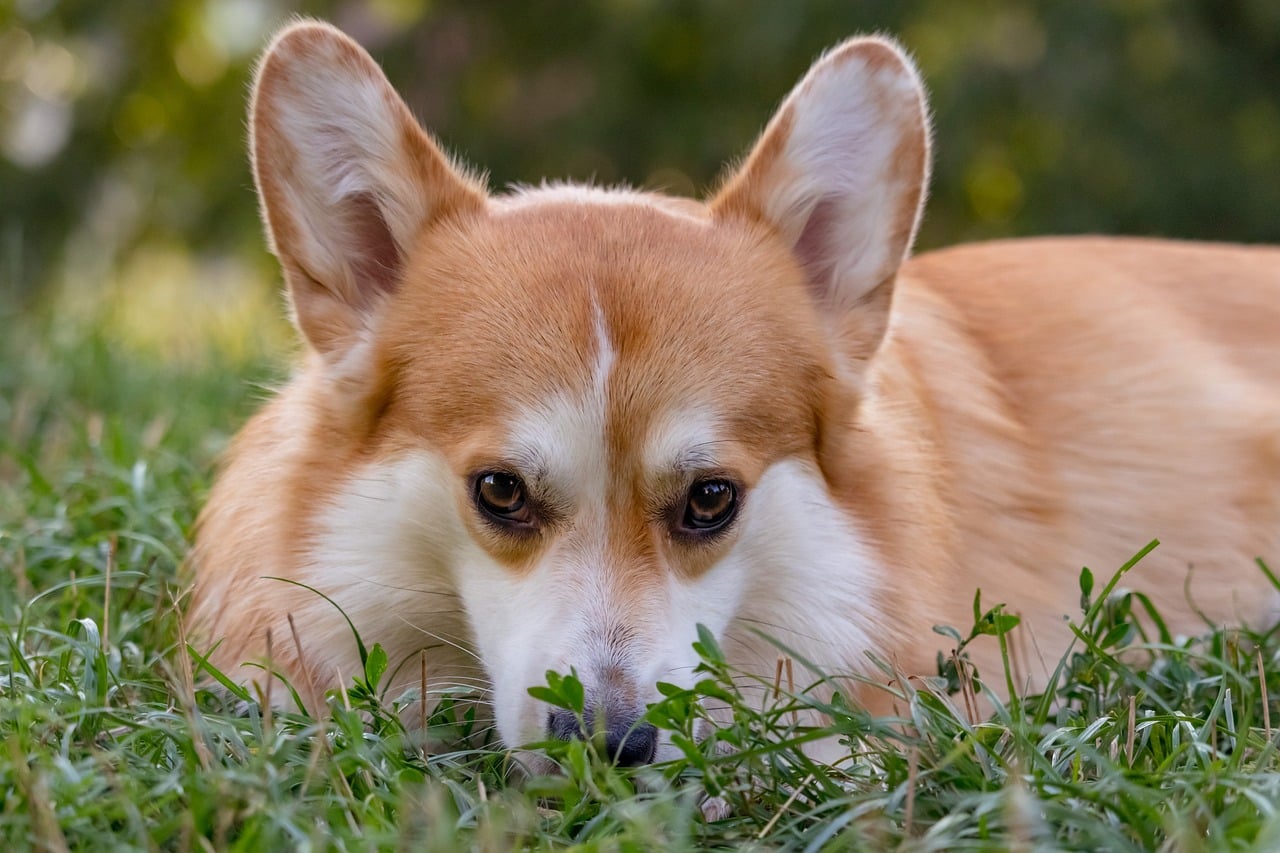 Shutterstock
Shutterstock
Pembroke Welsh Corgis are intelligent and affectionate, but they can also be prone to anxiety, particularly separation anxiety. These dogs are highly social and thrive on companionship, making them sensitive to being left alone. Corgis may exhibit anxious behaviors such as barking or destructive chewing when feeling stressed. To help alleviate anxiety, it’s essential to provide ample social interaction, training, and mental challenges. Crate training can also help them feel secure in their space. Regular exercise and positive reinforcement will promote a calm demeanor and build their confidence.
Havanese
 Shutterstock
Shutterstock
Havanese dogs are known for their affectionate nature and love for human companionship, but this breed can be prone to anxiety, especially separation anxiety. They may become overly attached to their owners, leading to stress when left alone. Havanese require regular interaction and mental stimulation to help manage anxiety levels. Training, socialization, and establishing a consistent routine can help build their confidence. These small dogs thrive in a loving environment, and providing a secure space can ease their anxiety when their owners are away.
Rottweiler
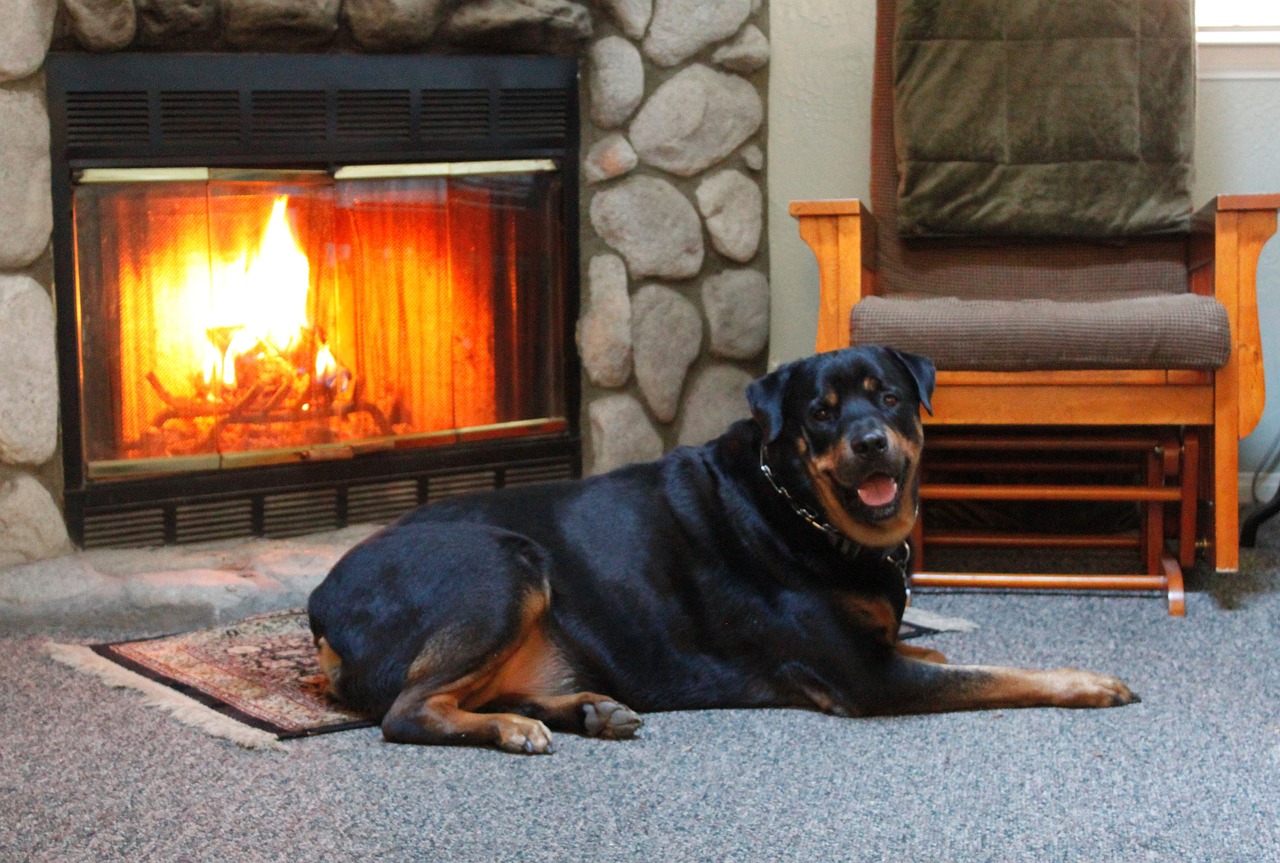 Shutterstock
Shutterstock
Rottweilers are loyal and protective, but they can also be prone to anxiety, especially when not properly socialized. They may become anxious in unfamiliar situations or loud environments, leading to stress-related behaviors. Rottweilers thrive on routine and predictability, and providing consistent training and socialization from a young age is crucial to help them cope with anxiety. Regular exercise and mental stimulation will also help alleviate stress and anxiety, ensuring that Rottweilers feel secure and confident in their surroundings.
Newfoundland
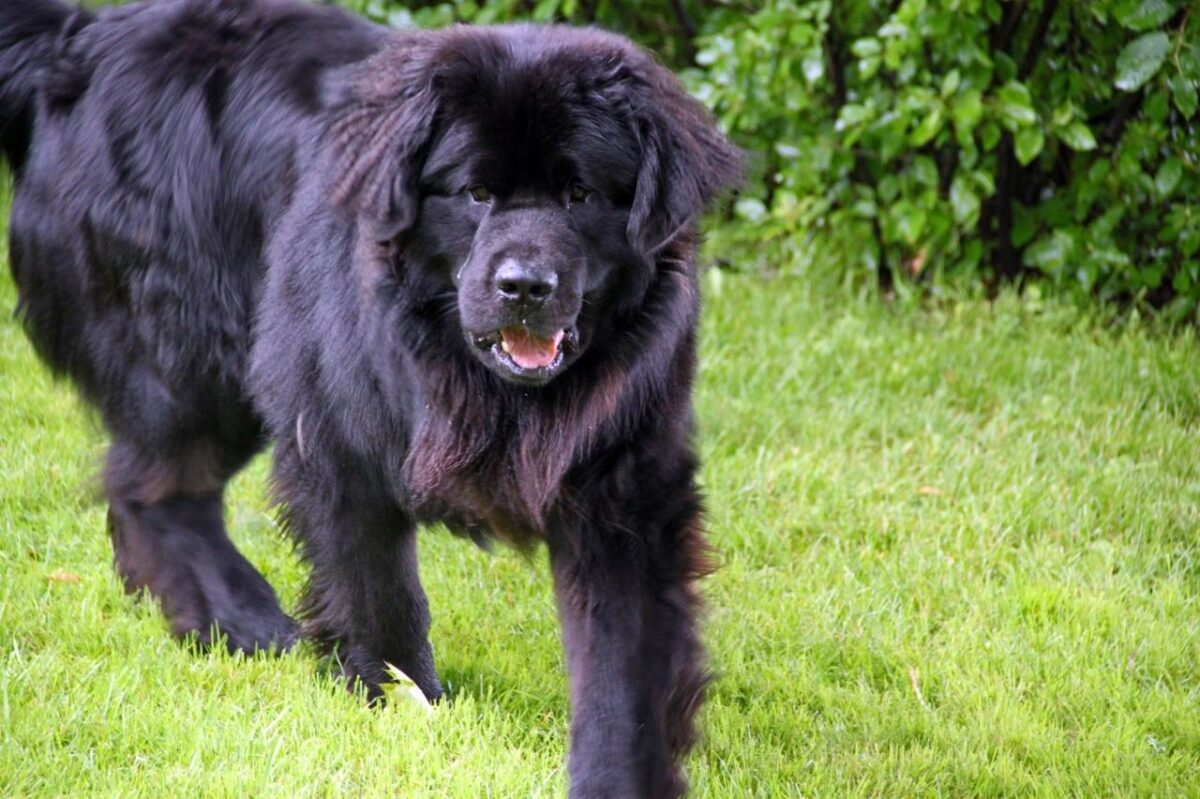 Shutterstock
Shutterstock
Newfoundlands are gentle giants known for their calm demeanor, but they can be prone to anxiety if not properly socialized. Their sensitive nature makes them susceptible to changes in their environment or routine. Newfoundlands thrive on companionship and may become anxious when left alone for long periods. Providing regular social interaction, consistent training, and a stable environment can help manage their anxiety levels. Ensuring they have plenty of physical and mental exercise will also contribute to their overall well-being and reduce anxiety-related behaviors.
Bull Terrier
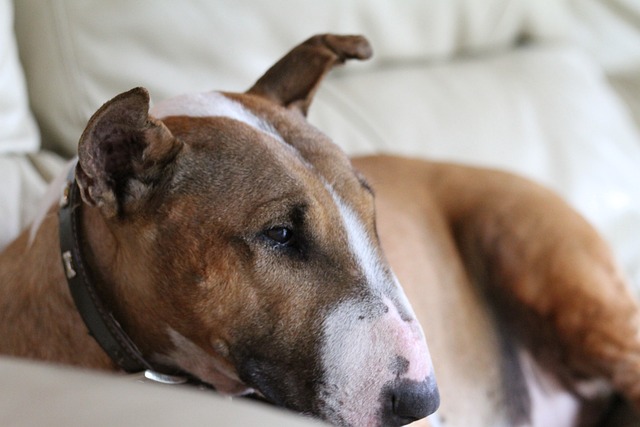 Shutterstock
Shutterstock
Bull Terriers are playful and affectionate dogs, but they can be sensitive and prone to anxiety. Their strong attachment to their owners can lead to separation anxiety, causing stress when left alone. Bull Terriers require consistent training and socialization to help manage their anxiety levels. Engaging them in regular physical activity and mental challenges can also alleviate boredom and anxiety. Providing a structured routine and ensuring they feel secure in their environment will help reduce their anxiety and make them more confident companions.
Pekingese
 Shutterstock
Shutterstock
Pekingese dogs are charming companions known for their affectionate nature, but they can also be prone to anxiety. Their strong attachment to their owners makes them sensitive to environmental changes. Pekingese may become anxious when left alone for extended periods or exposed to loud noises. To help manage their anxiety, it’s essential to provide consistent training, socialization, and a stable routine. These dogs thrive in a calm, loving environment, and ensuring they have plenty of mental stimulation and regular interaction can significantly reduce their stress levels.
Understanding Anxiety in Dogs
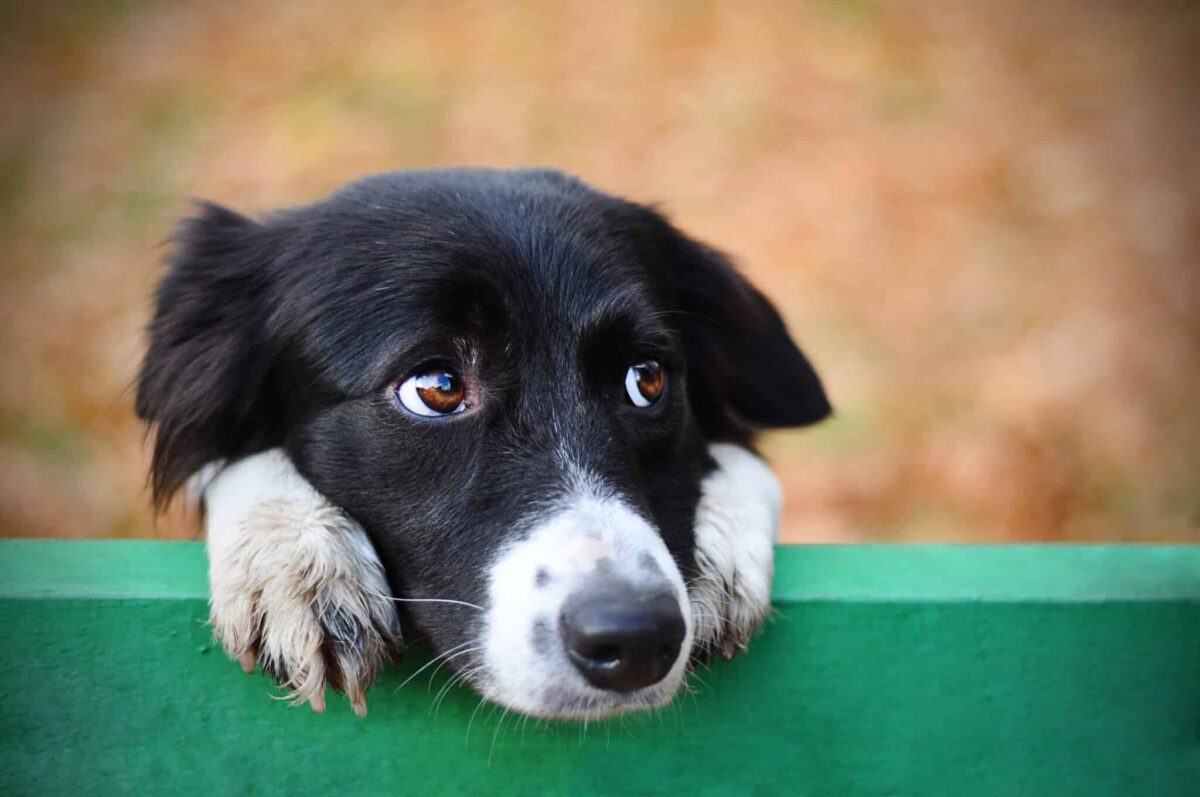 Shutterstock
Shutterstock
Anxiety is a common issue in many breeds, but with the right care, it can be managed effectively. Whether it’s separation anxiety, noise phobia, or sensitivity to environments, each breed has unique needs that should be addressed to ensure they feel calm and secure. By providing plenty of physical and mental stimulation, creating a predictable routine, and offering comfort during stressful situations, dog owners can help their anxious dogs lead happy, fulfilling lives. Understanding and addressing the specific anxiety triggers for these breeds is the key to helping them thrive.
 Toledo, United States.
Toledo, United States.